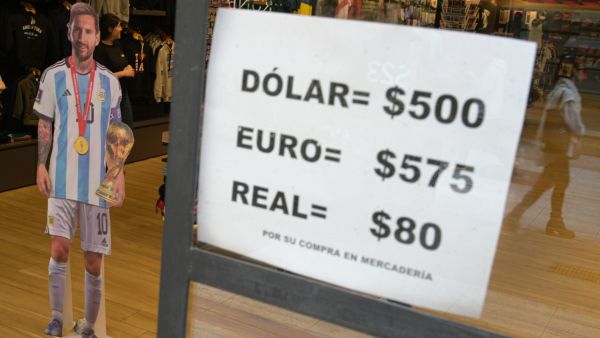ALBAWABA - Argentina is ditching the U.S. dollar, using the yuan instead of the greenback when paying for its imports from China.
BREAKING: Argentina ditches US dollar to pay for Chinese imports in Yuan
— Insider Paper (@TheInsiderPaper) April 26, 2023
The move, announced by Economy Minister Sergio Massa on Wednesday, aims to preserve the country's dwindling foreign reserves.
Argentina has been suffering from financial turbulence in the past two weeks, prompting the Central Bank to intervene in the currency markets.
#Argentina will pay for China's imports in Chinese yuan instead of US dollars, Economy Minister Sergio Massa said Wednesday. pic.twitter.com/o2Nd6MueA0
— People's Daily, China (@PDChina) April 27, 2023
The country will be able to "program a volume of imports in yuan worth [the equivalent of] more than US$1 billion from next month," Massa said at a meeting in Buenos Aires with China's ambassador Zou Xiaoli, the Buenos Aires Times reported Thursday.
This would "replace" the use of Argentina's U.S. dollar reserves for commercial operations with the Asian giant, the minister pointed out in a televised broadcast with Zou.
Argentina to pay for Chinese imports in yuan rather than dollars https://t.co/Piz53TSBt6 pic.twitter.com/XfLt5YW71z
— Reuters (@Reuters) April 27, 2023
Beijing and Buenos Aires already had a currency swap deal in place, which allows Argentina to use in case of emergency.
On Tuesday, President Alberto Fernández accused the country's right-wing opposition of fueling a dramatic erosion of the local currency, the peso, against the U.S. dollar, according to the Times.
Massa ordered an investigation into alleged wrongdoing and money-laundering.
Argentina also started de-dollarization
— Spriter (@Spriter99880) April 26, 2023
Argentine Minister of Economy Sergio Massa announced the transition to paying for imports from China in yuan. pic.twitter.com/l6vxGz65ww
The peso stood at 227 to the dollar at the official exchange rate Tuesday, but reached more than double that, nearing 500 per one greenback, on the parallel "dólar blue" market, the Times reported.







